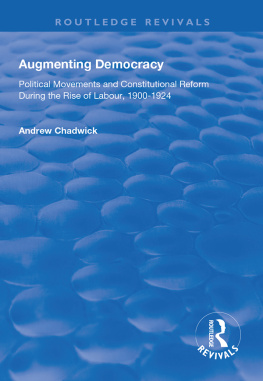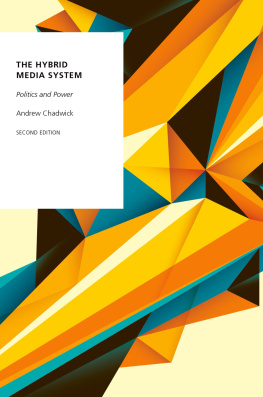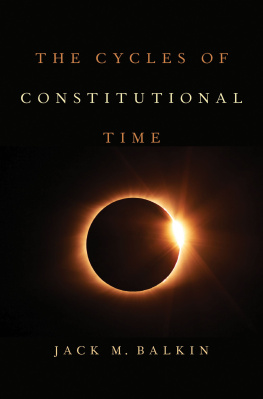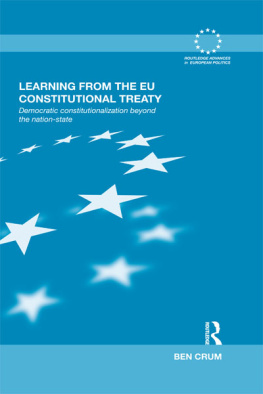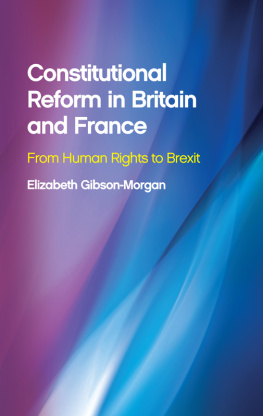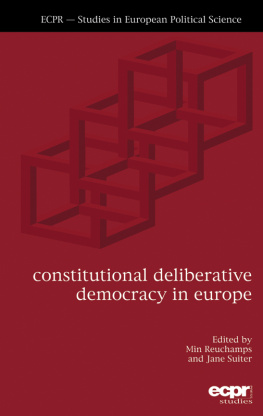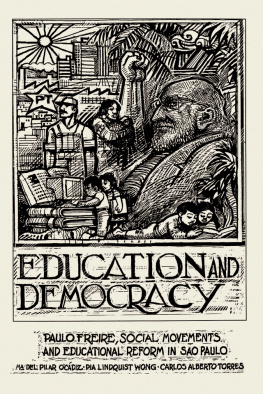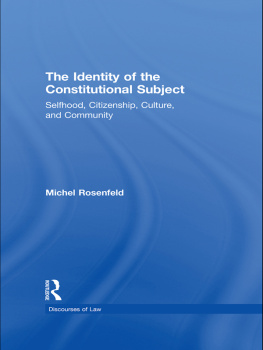First published 1999 by Ashgate Publishing
Reissued 2018 by Routledge
2 Park Square, Milton Park, Abingdon, Oxon OX14 4RN
711 Third Avenue, New York, NY 10017, USA
Routledge is an imprint of the Taylor & Francis Group, an informa business
Copyright Andrew Chandwick 1999
All rights reserved. No part of this book may be reprinted or reproduced or utilised in any form or by any electronic, mechanical, or other means, now known or hereafter invented, including photocopying and recording, or in any information storage or retrieval system, without permission in writing from the publishers.
Notice:
Product or corporate names may be trademarks or registered trademarks, and are used only for identification and explanation without intent to infringe.
Publishers Note
The publisher has gone to great lengths to ensure the quality of this reprint but points out that some imperfections in the original copies may be apparent.
Disclaimer
The publisher has made every effort to trace copyright holders and welcomes correspondence from those they have been unable to contact.
A Library of Congress record exists under LC control number: 99076345
ISBN 13: 978-1-138-60706-4 (hbk)
ISBN 13: 978-1-138-60711-8 (pbk)
ISBN 13: 978-0-429-46043-2 (ebk)
For their financial assistance, I wish to express my gratitude to the Economic and Social Research Council, the Scholarships Office at the London School of Economics and Political Science, and the Centre for Social and Economic Research at the University of the West of England.
The staffs of the following institutions made a potentially arduous task enjoyable: the British Library of Political and Economic Science; the British Newspaper Library at Colindale; the British Library at Bloomsbury; the Fawcett Library at London Guildhall University; the University of London Library at Senate House, Bloomsbury; the library at the Institute of Historical Research; the Bolland Library at the University of the West of England; the University of Bristol Library and the National Museum of Labour History in Manchester. The team at Ashgate Publishing have acted with clarity, patience and efficiency throughout.
Many individuals have helped me during the course of the research. I am grateful to them all. In particular, I would like to thank Rodney Barker, for his persistent encouragement, sound advice, tact and good humour, not to mention his ability to distinguish between real and imaginary crises. Without his support, this study would not have been written. I would also like to thank Professor Ben Pimlott and Dr. Tony Wright, MP, for their helpful comments on the doctoral thesis upon which this book is based.
I owe a special debt of gratitude to Richard Heffernan, Oliver James and James Stanyer - friends who understand that some of the most significant and interesting discussions do not take place in seminar rooms - for their many helpful comments on various aspects of the research. Thanks also to Brian Brivati, Nick Buttle, Diane Feiler, Michael Freeden, Andrew Hindmoor, Scott Kelly, Christopher May, Keith Syrett, Jacqueline Ross and Nathan Widder. Sections of the book have been presented as conference papers. I would like to thank participants at the following: the Political Studies Association Annual Conferences, 1996 and 1997; the Oxford Brookes University Humanities Research Centre conference on Republicanism in Britain, 1997; the Aston University conference on Analysing Political Discourse, 1997; the University of the West of England School of History and School of Politics Research Seminars, 1998; and the workshop on Political Ideas and Political Action, at the LSE, 1999. The students on my course, Ideas, Parties and Movements in Modem Britain, seldom fail to provide insights into the themes covered here.
My interest in both politics and history was first stimulated by a superb teacher, John Temple. For inspiration, advice and support over the years I would like to thank Leonard Tivey, Stevan Walker, Sarah Barlow, Paddy Diamond, Chris Pointon, Linda Pointon, Richard Cox, Susan Murphy, Geoff Chadwick, Diana Chadwick, and Steven Chadwick.
Finally, it is impossible to express how grateful I am to Sam Turner for her tolerance, understanding and love. Any errors or shortcomings are, of course, my own.
ASE | Amalgamated Society of Engineers |
ASRS | Amalgamated Society of Railway Servants |
AV | Alternative Vote |
BCA | British Constitution Association |
BSP | British Socialist Party |
EFF | Election Fighting Fund |
ELFS | East London Federation of Suffragettes |
FWG | Fabian Womens Group |
ILP | Independent Labour Party |
LRC | Labour Representation Committee |
MLWS | Mens League for Womens Suffrage |
NAC | National Administrative Council (of the ILP) |
NCAS | National Council for Adult Suffrage |
NDL | National Democratic League |
NLF | National Liberal Federation |
NRU | National Reform Union |
NUSEC | National Union of Societies for Equal Citizenship |
NUWSS | National Union of Womens Suffrage Societies |
PR | Proportional Representation |
PRS | Proportional Representation Society |
PSF | Peoples Suffrage Federation |
SACC | South African Conciliation Committee |
SDF | Social Democratic Federation |
SDP | Social Democratic Party (SDF before 1907) |
STV | Single Transferable Vote |
TRL | Tax Resistance League |
TUC | Trades Union Congress |
UDC | Union of Democratic Control |
WCG | Womens Co-Operative Guild |
WFL | Womens Freedom League |
WLF | Womens Liberal Federation |
WLL | Womens Labour League |
WNLA | Womens National Liberal Association |
WSF | Workers Suffrage Federation |
WSPU | Womens Social and Political Union |
WTUL | Womens Trade Union League |
PART ONE:
A Panoramic Approach
Since the late 1980s there has been a wave of revisionism in nineteenth and early twentieth century British history. New interpretations have emerged, new evidence has been uncovered, and established evidence has been presented within new interpretive frameworks. The fundamental issue is the explanatory value of class as it has been understood since the emergence of labour and social history during the 1960s. Around this, several other issues soon gathered. As one of the pillars of historical interpretation began to crumble, new research agendas emerged. The potency of new empirical evidence combined with fresh approaches to that evidence is undeniable. The shift has produced a widespread reappraisal of earlier class-based interpretations of politics and a reassertion of the importance of ideas in history. The examination of political discourse, and the organisational structures of parties, movements, and the state, has gone hand in hand with a new sensitivity to the means through which historical evidence is mediated, exhibited in postmodernist approaches to the study of political identities. One of the outcomes of this revisionism has been a recognition of the influence of radical liberal discourses on the early twentieth century left in general, and on the early Labour party in particular. This study emerges out of such concerns. It aims to further our understanding of the relations between radical liberalism, labourism, socialism and feminism during the years between 1900 and 1924 through an examination of how these groups discussed three distinct constitutional issues: the House of Lords, the suffrage, and proportional representation (PR).

